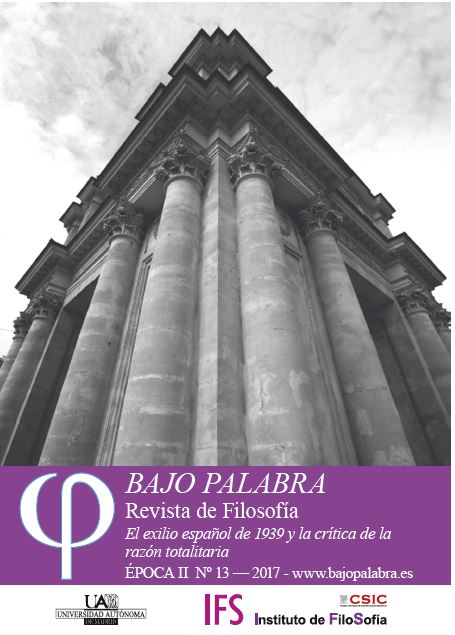Keywords:
Humanitarian law, barrister, 1931 Constitution, genocide, totalitarianism, exile, liberal republicanism, compromise, war, political crimeCopyright (c) 2017 Jorge Novella Suárez

This work is licensed under a Creative Commons Attribution 4.0 International License.
Abstract
Mariano Ruiz-Funes was a Professor of Criminal Law, a Republican and a Congressman. He was one of the speakers in the committee for the 1931 Constitution. He also served as a Secretary of Agriculture and Commerce, was a forefather of Humanitarian Law with his fight against genocide, and fought the negationists. His criticism to totalitarianism is present in his writings from the beginning of the 1940s to his death. In the cartography of the Spanish exile of 1939, and in his models of critical reason, Ruiz-Funes adds to his condition of exile and fighter against barbarity the condition of a witness of his time: to tell what happened. This intellectual task was motivated by the political ethos characteristic of the humanitarian and liberal tradition of the Spanish Republic.
